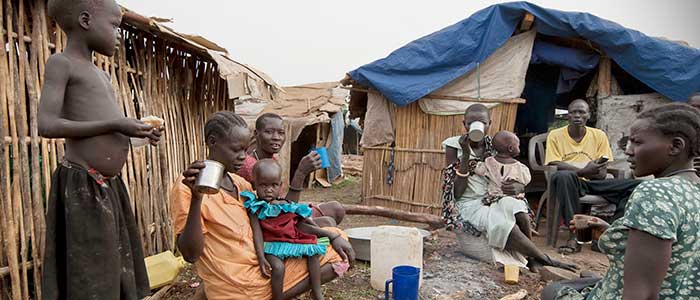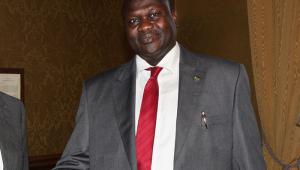Web_SouthSudan_iStock_000061842024_Large.jpg

People in displaced persons camp in Juba, South Sudan
In line with the terms of last August’s peace agreement, president Salva Kiir will share power with his long-time rival Machar, the opposition, and other parties until 2018.
It could mean the end to a destructive two-year conflict marked by its brutality and gross human rights abuses.
United Nations president Ban Ki-Moon welcomed the news as an “important milestone” and urged parties to ensure the end to all violence immediately.
However suspicions still run high among both sides, and fighting continues between militias who now operate without direction from Kiir or Machar.
Keeping the peace, especially as previously warring forces now live side by side in the capital Juba, will be a key challenge for the government going forward, as will rescuing the country from economic crisis.
A number of Kiir loyalists remain in key positions, including the role of petroleum minister.
The fragile peace agreement, which has been plagued by delays and continued fighting, finally got underway earlier this week when Machar returned to the capital Juba to be sworn in as vice president.
He had endangered the tentative deal by turning up one week late.
Civil war broke out in the world’s youngest country after a political power struggle between Machar, who was vice president at the time, and Kiir.
Machar was sacked as vice president after being accused of trying to organise a coup, sparking violence which eventually deteriorated into full-blown conflict divided along ethnic lines.
Tens of thousands of people were killed and more than 2 million driven from their homes in the two year civil war.





